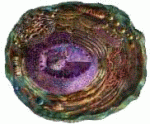Cell Biology
|
26 march 2015 05:34:18 |
| Long-term culture and significant expansion of human Sertoli cells whilst maintaining stable global phenotype and AKT and SMAD1/5 activation (Cell Communication and Signaling) |
|
Tweet Background:
Sertoli cells play key roles in regulating spermatogenesis and testis development by providing structural and nutritional supports. Recent studies demonstrate that Sertoli cells can be converted into functional neural stem cells. Adult Sertoli cells have previously been considered the terminally differentiated cells with a fixed and unmodifiable population after puberty. However, this concept has been challenged. Since the number of adult human Sertoli cells is limited, it is essential to culture these cells for a long period and expand them to obtain sufficient cells for their basic research and clinic applications. Nevertheless, the studies on human Sertoli cells are restricted, because it is difficult to get access to human testis tissues.
Results:
Here we isolated adult human Sertoli cells with a high purity and viability from obstructive azoospermia patients with normal spermatogenesis. Adult human Sertoli cells were cultured with DMEM/F12 and fetal bovine serum for 2 months, and they could be expanded with a 59,049-fold increase of cell numbers. Morphology, phenotypic characteristics, and the signaling pathways of adult human Sertoli cells from different passages were compared. Significantly, adult human Sertoli cells assumed similar morphological features, stable global gene expression profiles and numerous proteins, and activation of AKT and SMAD1/5 during long-period culture.
Conclusions:
This study demonstrates that adult human Sertoli cells can be cultured for a long period and expanded with remarkable increase of cell numbers whilst maintaining their primary morphology, phenotype and signaling pathways. This study could provide adequate human Sertoli cells for reproductive and regenerative medicine. |
| 132 viewsCategory: Cell Biology |
 The transcription factor MITF is a critical regulator of GPNMB expression in dendritic cells (Cell Communication and Signaling) The transcription factor MITF is a critical regulator of GPNMB expression in dendritic cells (Cell Communication and Signaling)Metabolic pathways promoting cancer cell survival and growth (Nature Cell Biology) 
|
| blog comments powered by Disqus |
MyJournals.org
The latest issues of all your favorite science journals on one page
The latest issues of all your favorite science journals on one page



